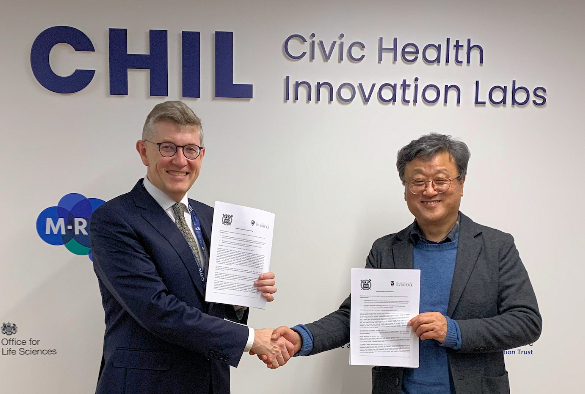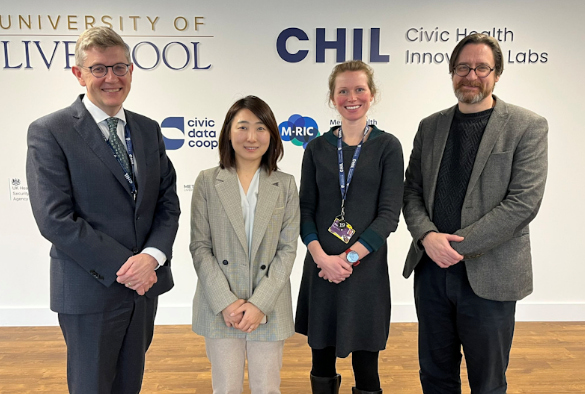CHIL strengthens health innovation collaborations with South Korea

In recent weeks, Civic Health Innovation Labs (CHIL) has hosted visits from South Korean collaborators as part of an ongoing programme to strengthen links between the UK and South Korea.
The month began with a visit from Professor Hong-Gee Kim from Seoul National University, resulting in the signing of a memorandum of understanding (MoU) between CHIL and Professor Kim's Biomedical Knowledge Engineering Laboratory (BIKE). The focus of the MoU includes the development of synthetic data methods for population health management AIs, the creation of trusted virtual laboratories for cross-country data researchers, and the initiation of a research and education exchange programme.
Professor Iain Buchan, Director of CHIL commented: “By combining the unique algorithmic capabilities of the Biomedical Knowledge Engineering Lab at SNU and the secure data environment within CHIL, researchers from both institutions will be able to address local and global health challenges through data driven advances.”

Last week, the team welcomed Dr Sun Jae Jung from Yonsei University College of Medicine, who delivered a seminar on the impact of trauma on the body, drawing from a large-scale epidemiology cohort in South Korea, and provided an overview of her journey into psychiatric epidemiology research.
The seminar sparked a thoughtful discussion, covering topics such as mental health challenges arising from Covid-19, social backgrounds, and the use of data to address these issues. Members of CHIL's Mental Health Research for Innovation Centre (M-RIC) also met with Dr Jung to explore potential areas of collaboration.
Professor Dan Joyce, M-RIC Theme Lead Investigator commented: “Dr Jung and her team's work created significant excitement among the assembled M-RIC team because we learned how her detailed and granular work on PTSD and cardiovascular disease can be combined with 'at-scale' population data to better understand and target the health of the population. We have a lot to learn from Dr Jung and her colleagues at Yonsei University as we move our own work forward".